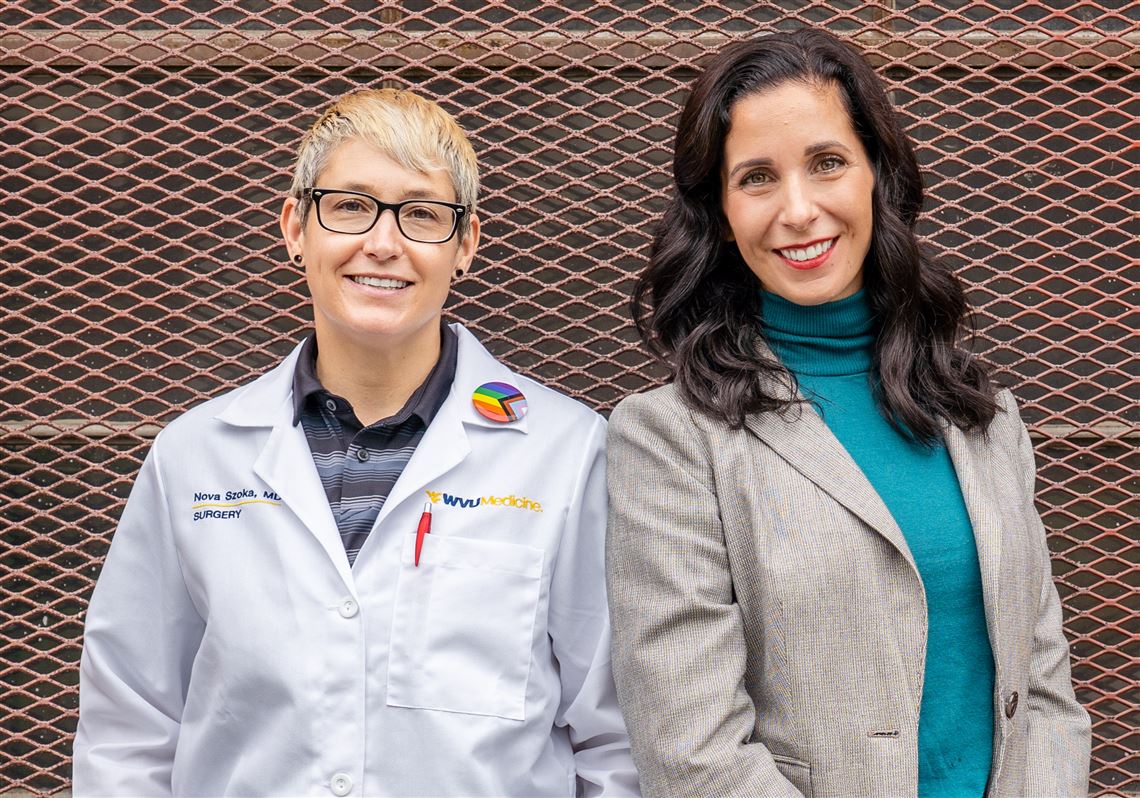In 2021, the Food and Drug Administration made it easier to get new medical devices on the market if they improved the safety of already available treatments.
Morgantown-based Endolumik Inc., which has offices at Innovation Works’ AlphaLab Gear facility in East Liberty, was the first company in the U.S. approved for the initiative, which is called the Safer Technologies Program. Hampton native and serial entrepreneur Mara McFadden is Endolumik co-founder and CEO.
“I really love the process of making lifesaving medical products,” said Ms. McFadden, 42, who has built a career in life science companies. “That’s something that really wakes me up.”
The FDA’s approval of Endolumik’s surgical lighting device was “almost surreal,” she said.
Endolumik, which was founded in 2020 by Ms. McFadden and Dr. Nova Szoka, an assistant professor of bariatric surgery at West Virginia University School of Medicine, allows surgeons to better visualize surgical tools as they are being used in the stomach. The device uses near infrared light and specially designed cameras that are sensitive to the light to improve what the surgeon can see during operations, Dr. Szoka said in a prepared statement.
“We believe the enhanced visualization that our device provides will help surgeons standardize surgical outcomes for sleeve gastrectomy and this will translate into improved patient outcomes,” she said.
Previously, surgeons were not able to directly visualize surgical tools they were using. Endolumik’s lighting product is based on technology licensed from WVU.
“The standard of care is they just have to make their best guess” about location, Ms. McFadden said, which sometimes includes simply feeling the outside the stomach for the tools during gastric surgery. Several other calibration tubes are on the market, but Endolumik’s fluorescence guided tube is the first to use near infrared light, she said.
Endolumik has raised $2.2 million in funding, has just two employees and has not yet generated revenue. But real world use of Endolumik’s device is scheduled for spring, and knocking on the door of a rapidly expanding market for bariatric surgery that is expected to reach $4.8 billion by 2028, according to British Columbia, Canada-based Emergen Research.
Megan Shaw, managing director of life sciences at Innovation Works, said Endolunik was the “most capital efficient startup I’ve ever seen” in 20 years as an investor and advisor.
“It is extremely rare for a CEO not only to meet, but exceed milestones and timelines,” Ms. Shaw said. “I have the utmost respect for her.”
Ms. McFadden received an undergraduate degree in mechanical engineering from the University of California, Berkeley and an MBA from Carnegie Mellon University, where she is an adjunct faculty member at the university’s Center for Leadership Studies. She has been an executive in residence at LifeX Labs, a startup business accelerator supported by the University of Pittsburgh, and a mentor for entrepreneurs at AlphaLab Gear.
Her life science company experience includes stints at Johnson & Johnson and Philips Respironics. And yet, Endolumik is an anomaly, both in the region and within the venture capital world.
Women-founded companies garnered just 2.1% of the total $238 billion invested in venture backed startups in 2022, according to Seattle-based PitchBook, which tracks startup company data. Neither Pittsburgh nor Morgantown were among the top five cities in the U.S. for venture capital raised for female-only owned companies.
What’s more, women-owned startups that get venture capital investment are often gender-related businesses, involving such things as hair care products or cosmetics, Ms. McFadden said, which is unusual since women make 80% of health care purchases and comprise 80% of the health care workforce.
“That’s something that matters to me a lot,” she said. “This is such a dramatic oversight.”
Kris B. Mamula: kmamula@post-gazette.com
First Published: March 27, 2023, 9:30 a.m.
Updated: March 27, 2023, 11:45 a.m.
















